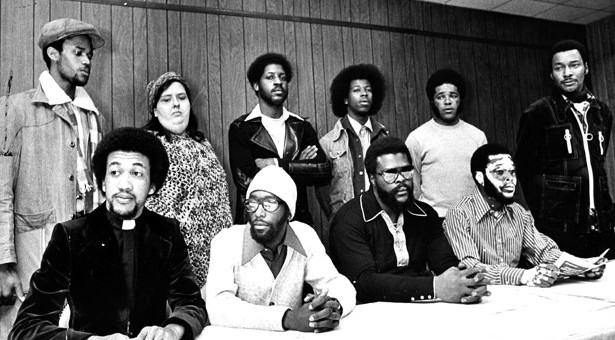The Wilmington Ten

Clockwise from Top Left: Wayne Moore, Ann Shepard, James McKoy, Willie Vereen, Marvin Patrick,
Reginald Epps, Jerry Jacobs, Connie Tindall, William Wright, and Rev. Benjamin Chavis Jr.
Forty-four years ago, in October 1972, ten innocent young people were wrongly convicted of firebombing a store and shooting at firefighters in Wilmington, North Carolina. In 1980, a federal Court of Appeals reversed their convictions and released the defendants who were not already out on parole because the prosecution had concealed admissions by two key witnesses that they falsely accused the defendants.
But the Wilmington Ten, as they became known, were not exonerated until 2012—40 years after they were convicted—when they were pardoned by North Carolina Governor Beverly Perdue.
In early 1971, a couple of decades into the era of student civil rights protests, the city of Wilmington closed its black high school and sent the students to an all-white school, but denied them equal access to student activities.
In response, the black students organized a boycott which attracted wide community support. The students worked closely with the Gregory Congregational United Church of Christ (UCC) in Wilmington.
On February 4, 1971, carloads of white men drove past the church and fired shots into the sanctuary. A telephone call to the church warned that a bombing was imminent. The situation escalated when some students and residents retrieved guns and returned to the church to protect it.
Over the next three nights, similar attacks were carried out on the church, and the city of Wilmington exploded in a series of fire-bombings and gunfire. Several people were killed and millions of dollars in damage was done to homes and businesses.
On February 6, Mike’s Grocery, a white-owned business, was firebombed. Firefighters who responded to the blaze said they were shot at by a sniper from the roof of the nearby Gregory Congregational Church.
A year later, 23-year-old Rev. Benjamin Chavis Jr. of the UCC Commission for Racial Justice, and nine others were charged with the firebombing and shooting. All ten were convicted and sentenced to lengthy prison terms.
We’ve known about this case for years. But the Registry only includes exonerations that occurred after January 1, 1989, and we assumed that the Wilmington Ten had been exonerated sometime soon after they were released in 1980. So we put their case on a separate list of pre-1989 exonerations that we plan to release next year.
We were wrong.
Recently, Professor Jeffrey Gutman of George Washington University Law School—who is studying laws that provide compensation for wrongful imprisonment—told us about a North Carolina Court of Appeals ruling that upheld denial of posthumous compensation to four of the Wilmington Ten. From that, we learned that on December 31, 2012, the Wilmington Ten defendants were granted full pardons based on actual innocence.
Gov. Beverly Perdue Signing the Pardons of the Wilmington Ten
Checking further, we found out that the charges against the Wilmington Ten had never been dismissed. That means that the 2012 pardons were their first and only exonerations—and therefore they do qualify for listing. They were added to the Registry on November 17.
The Registry constantly searches for and documents previously unrecorded exonerations that occurred in years past. We learn about cases from attorneys or the exonerees themselves; we stumble across them when researching other cases; we hear about them from researchers like Professor Gutman; and we find them through our own systematic searches. It’s clear that there are many more that we have not yet discovered.
The Wilmington Ten are highly unusual late additions to our list. It’s the largest group of exonerated defendants in a single case that we list. The time from conviction to exoneration—40 years—is one of the longest periods of time between conviction and exoneration that we have found. And as a result, four of the defendants are among the small number of posthumous exonerations we know about, which now stands at 19.
The best-known member of the Wilmington Ten,
Rev. Benjamin Chavis Jr., went on to a long career as a civil rights activist. Chavis and the other nine—
Wayne Moore,
Ann Shepard,
James McKoy,
Willie Vereen,
Marvin Patrick,
Reginald Epps,
Jerry Jacobs,
Connie Tindall, and
William Wright— are now included in the Registry. You can find more about the case on their individual pages.
- Maurice Possley, 30 November 2016